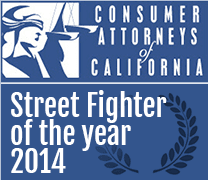
San Jose Elder Abuse Attorneys
Fighting for Victims of Elder Abuse & Neglect in the Bay Area
When faced with nursing home/assisted living abuse or neglect, you need a legal team that provides you with knowledge, care and efficiency. Needham Kepner & Fish LLP has a long history of representing victims of elder abuse and neglect in the Bay Area. Our San Jose elder abuse attorneys help our clients hold negligent nursing homes and assisted living facilities financially responsible. We may be able to help you recover compensation for your losses, too.
Schedule a free consultation with us to discuss your or your loved one’s situation. Our San Jose elder abuse attorneys can answer questions and concerns you may have, and help you understand your potential legal options. Call (408) 716-1668 today!
What Is Elder Abuse in California?
The Department of Justice defines elder abuse as “a single or repeated act or lack of appropriate action, occurring within any relationship where there is an expectation of trust which causes harm or distress to an older person.” In California, elder abuse encompasses many types of abuse, neglect and exploitation toward anyone 65 years of age or older or a dependent adult. Types of elder abuse may include:
- Physical abuse - any type of physical assault inflicted upon a senior, including battery, sexual assault, or use of a physical or chemical restraint for punishment. Signs of physical abuse can include bruises, cuts or behaviors which indicate internal injuries.
- Psychological abuse - often involves intimidating, demeaning or threatening behaviors directed at a senior. These behaviors cause the victim to feel mental anguish.
- Neglect and endangerment - forms of neglect can include abandonment and isolation, which causes a senior to suffer psychologically. Neglect can also be shown when a care provider fails to provide basic care, such as help with eating, transferring, walking, bathing, or turning and repositioning to avoid bedsores, all of which can also weigh on a senior’s mental and physical wellbeing.
- Sexual abuse - the elderly are some of the most vulnerable members of our society and as such they are a natural target for sexual predators. Not all nursing homes do proper criminal screenings of their staff and unfortunately their residents are the ones who pay the price.
- Financial abuse - it's natural that the elderly would trust their caregivers. Unfortunately, there are duplicitous people out there who attempt to swindle the elderly out of their limited income and possessions.
Where Does Elder Abuse Occur?
Elder abuse is often viewed synonymously with nursing home abuse, however, the majority of elder abuse cases occur in the home. And in 60% of elder abuse and neglect cases, the perpetrator is a family member.
What Are Common Signs of Elder Abuse and Neglect?
Stay alert for the signs of nursing home abuse and neglect when visiting your loved one. You can look for signs within your loved one’s facility. Indications of a facility where elder abuse and/or neglect exists may include, but are not limited to:
- High turnover in staff
- Insufficient supervision of residents
- Insufficient response time
- Poor security
Physical Signs of Elder Abuse
You should also look for physical signs on your loved one. Common signs of elder abuse or elder neglect may include, but are not limited to:
- New and unexplained injuries. Injuries may include bruises, scrapes or burns. Scrapes on the hands, wrists, thighs or ankles can be a sign of forceful restraint or sexual abuse. Falls in nursing homes can cause blunt force trauma, resulting in broken bones or lacerations.
- Bedsores. Pressure sores located on the tailbone, shoulders, hips or heels are a common sign of neglect. Nursing homes and assisted living facilities are responsible for providing adequate turning and repositioning for each of their residents.
- Malnourishment. Signs of fluctuation in weight or dehydration could be a sign of the withholding of food and drink. These changes could be medical, but they could also indicate abuse and/or neglect.
- Decline in hygiene. Dirty or unwashed clothes, soiled diapers, and a lack of bathing are indicators of neglect. If your loved one seems unbathed or unclean, then he or she may be at risk of further infection and disease.
Behavioral Signs of Elder Abuse
Emotional changes in your loved one may also suggest abuse or neglect. These signs may include, but are not limited to:
- Unusual changes in mood or demeanor
- Emotional stress. Elders in an abusive or neglectful situation can become reclusive, even toward their trusted loved ones. Other forms of emotional stress can include change of temperament or change in social habits.
- Arguments or tension between elderly and caregiver. If your loved one suddenly begins acting disagreeable around the caregivers or facility staff, then this could be a sign of nursing home neglect and/or abuse.
- Withdrawal from others or from usual activities
- Changes in financial or estate planning situation
Signs of elder abuse vary depending on the type of abuse or neglect. Learn more warning signs here:
More Signs of Elder Abuse and Neglect
What Can I Do If I Suspect Nursing Home Neglect and/or Abuse?
Elder abuse and/or neglect can lead to avoidable illnesses, injury or even wrongful death. Your loved one may be helpless to seek action in this situation. It may fall to you to seek justice for your loved one.
Take action if you have reason to believe that your loved one is experiencing elder neglect and/or abuse in his or her nursing home or assisted living facility. If you believe your loved one is in immediate danger, call 9-1-1. If your loved one is not in immediate danger, you should gather evidence and report the suspected conduct immediately.
Be diligent in recording any signs of suspected abuse or neglect. You should keep photos and documentation of:
- Injuries
- Medical reports
- Records of conversations with other residents or staff
- Anything that you believe demonstrates a violation of the proper standard of care
How Do I Report Elder Abuse in California?
If you see something, say something. You are the best advocate for protecting your loved one from elder abuse.
Contact the elder abuse hotline through Adult Protective Services to report elder abuse in California. This agency investigates reports of abuse for the elderly (aged 65+) as well as for dependent adults (aged 18-64 and disabled).
To get in touch with the right authorities, you will want to contact the appropriate county APS office. You must fill out either a general elder abuse form or an elder financial abuse formto submit an official report.
Our San Jose elder abuse lawyers have also outlined further steps to take if you suspect elder abuse or neglect:
6 Steps to Take If You Suspect Abuse or Neglect
How Can a San Jose Elder Abuse Attorney Help Me?
California elder abuse laws allow victims to file civil lawsuits for damages against their abusers. An elder abuse attorney can investigate for signs of neglect and/or abuse. Your attorney can also gather and evaluate crucial evidence, helping you build a solid case against whoever is abusing you or your loved one. Then, your attorney may be able to help you sue for elder abuse and hold the nursing home or assisted living facility accountable.
It is important to contact an attorney as soon as possible if you suspect abuse or neglect. We can help you understand your legal options based on the unique circumstances surrounding your situation.
Talk to Our San Jose Elder Abuse Lawyers About Your Case
Caring for your loved one during his or her later years can be challenging. Your loved one may grow increasingly vulnerable with time, but you may not always be there to keep him or her safe. However, spotting the signs of elder abuse can prevent ongoing abuse. You can put a stop to these situations when you report elder abuse in California.
Needham Kepner & Fish LLP also works with Stebner and Associates to protect the rights of the elderly in the San Francisco Bay Area.
Discuss your personal situation with an experienced and compassionate San Jose elder abuse attorney from our firm during a free consultation. You can call us at (408) 716-1668 or use our online form to reach us.







